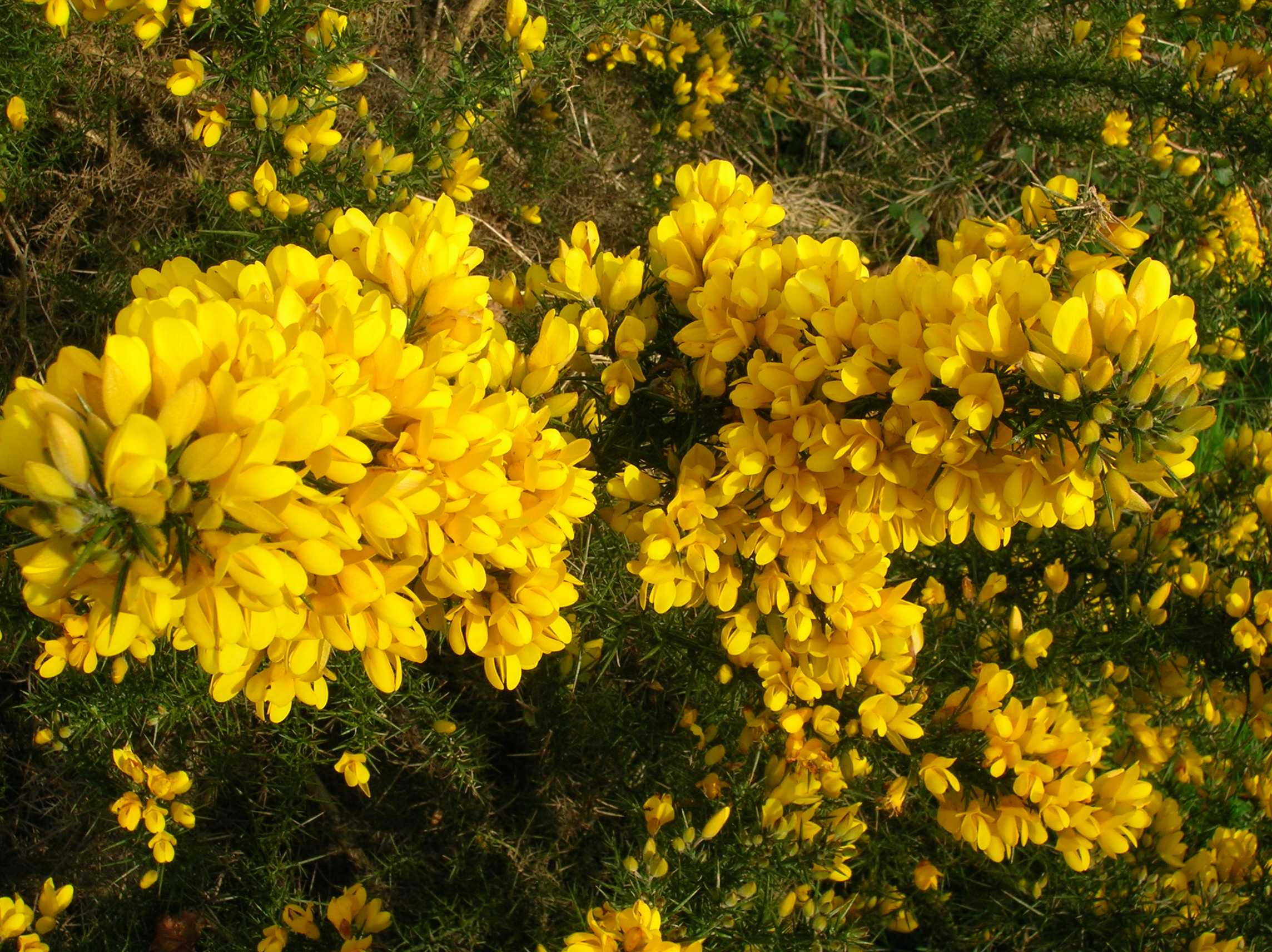
Rosser1954, Wikimedia Commons
Jersey
Gorse
Ulex europaeus

Rosser1954, Wikimedia Commons
General Description / Cultural Significance
Gorse (Ulex europaeus), a pea family member, is a fragrant evergreen shrub native to the British Isles, including the island of Jersey. A symbol of resilience and continuity, this plant is notable for its bright yellow, butterfly-shaped flowers that exude a fruity, coconut-like aroma. It can bloom year-round, bringing a splash of color and fragrance to the landscape even in the winter months.
Gorse is a wild edible plant with various culinary applications. The vibrant flowers and buds are often harvested to make tea, wine, and beer, lending a unique flavor to these beverages. Additionally, the flowers can be pickled and used similarly to capers, adding a distinctive taste to dishes.
Traditionally, gorse has been valued in herbal medicine for its purported health benefits. It has been used to treat respiratory and skin problems and is sometimes considered a general tonic. The use of gorse in folk remedies highlights its significance in local health practices and traditional knowledge.
In Jersey, gorse and gorse-lands are integral to both the ecology and cultural heritage of the region. Because of this dense and hardy plant’s ability to thrive in challenging conditions, it plays a crucial role in protecting coastal land and slopes from harsh maritime environents. By stabilizing the soil and reducing erosion, gorse helps to maintain the integrity of the landscape.
Moreover, gorse provides essential habitat for a variety of wildlife. Birds, insects, and other animals find shelter and sustenance among its thorny branches, making it a key component of the local ecosystem. The flowers attract pollinators, contributing to the biodiversity of the area.
Historically, the plant has been used for various practical purposes. Gorse is employed in traditional agricultural practices to mark field boundaries and protect sensitive areas from livestock and human encroachment. Gorse was once commonly used as fuel for baking bread in traditional bread ovens due to its high oil content and ability to burn hot and clean. During times of need, gorse can serve as forage for livestock, further demonstrating its versatility and importance in rural life.
The cultural heritage of Jersey is deeply intertwined with the presence of gorse which underscores the plant’s utility and historical importance.
Climate Change / Conservation Status
Jersey, a self-governing dependency of the United Kingdom, is experiencing significant climate change impacts that threaten its natural landscapes, biodiversity, and socio-economic stability. Jersey’s coastline, renowned for its beauty and biodiversity, is increasingly at risk. Coastal erosion is becoming more pronounced, threatening natural habitats, residential areas, and tourism. As landscapes are degraded and agricultural outputs become less reliable, the economic stability and livelihoods are put at risk.
The island’s low-lying regions, such as St. Ouen’s Bay and the Royal Bay of Grouville, are particularly susceptible. These areas face the dual threats of inundation and saltwater intrusion, which can lead to the loss of fertile agricultural land and freshwater sources. The island’s government has had to invest in costly coastal defense mechanisms, such as sea walls and revetments, to protect both human and natural assets.
Changes in temperature and precipitation patterns are altering habitats and putting pressure on native species such as Gorse. Some native species are struggling to adapt to the new conditions while invasive species exploit the changing environment putting woodlands and heathlands at risk. Jersey’s unique flora and fauna, some of which are found nowhere else in the world, face increasing stress from shifting climatic conditions.
In response to these challenges, Jersey has been proactive in developing climate action plans. The island’s government has committed to reducing carbon emissions, promoting renewable energy, and enhancing energy efficiency. Initiatives such as the Carbon Neutral Strategy aim to make Jersey carbon-neutral by 2030. Community involvement is also critical. Education and awareness campaigns are helping to foster a culture of sustainability among residents, organizations, and businesses.
Alternate Names
Ulex
Furze
Whin
Sources
The original statement is from States’ Greffe, States Building, Jersey, C.I

